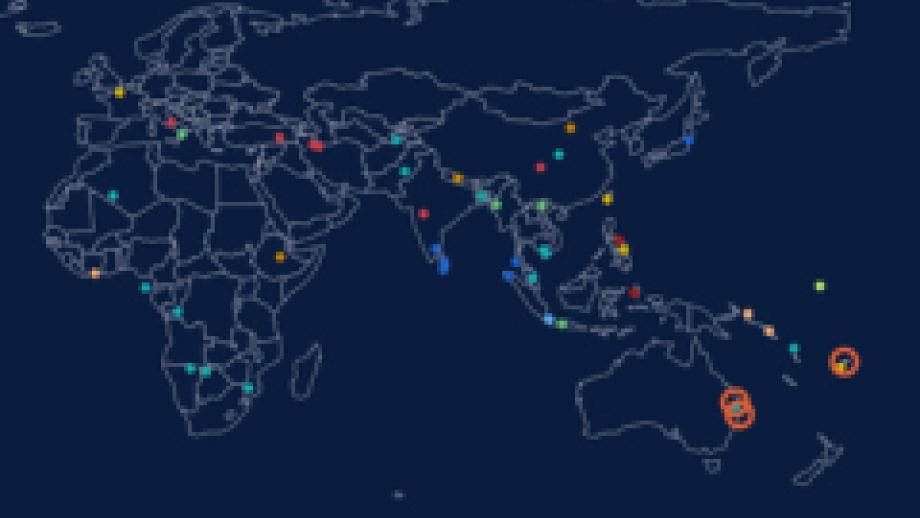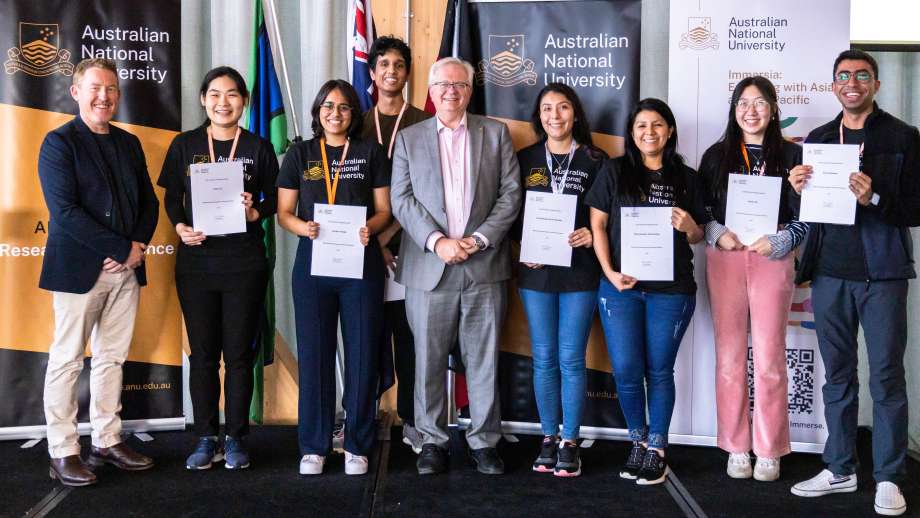Book celebration - the Palgrave Handbook of environmental restorative justice
Presented by ANU College of Asia & the Pacific
This event celebrates the publication of The Palgrave Handbook on Environmental Restorative Justice. Authors from diverse disciplines discuss how principles and practices of restorative justice can be used to address the threats and harms facing the environment today.
The book covers issues such as how to incorporate the voice of future generations, nature, and more-than-human animals and plants in processes of justice and repair, through to detailed descriptions of actual practices of Environmental Restorative Justice.
The case studies are situated in a wide range of countries and in the context of varied forms of environmental harm - from small local pollution incidents, to endemic ongoing issues such as wildlife poaching, to cataclysmic environmental catastrophes resulting in cascades of harm to entire ecosystems.
Throughout, it reveals how the relational and caring character of a restorative ethos can be conducive to finding solutions to problems through sharing stories, listening, healing, and holding people and organisations accountable for prevention and repairing of harm.
The event will include reflections on the book by some of its authors and comments on it by experts in both environmental regulation and restorative justice.
About the speakers
Deborah (Deb) Cleland is a Visiting Fellow at RegNet and the lead advisor for a Greens MLA in the ACT Parliament, providing strategic advice across offices on the portfolios of Better Neighbourhoods, Corrections, Policy and Emergency Services, Workplace Health and Safety (WHS), Industrial Relations, Multicultural Affairs, Democracy, Integrity and Community Engagement and the Arts. Deb's PhD examined how games and creative participatory activities could facilitate dialogue and learning in natural resource management. Over the last 20 years, Deb has worked on various community boards and government committees, as well as in physical theatre, academia and conservation. Across these domains, Deb works on improving justice, equality, sustainability and citizen engagement in our democracy.
Miranda Forsyth is a Professor at RegNet in the College of Asia and Pacific at ANU. Prior to coming to ANU, she was a senior lecturer in criminal law at the law school of the University of the South Pacific, based in Port Vila, Vanuatu. Miranda is the author of A Bird that Flies with Two Wings: Kastom and State Justice Systems in Vanuatu (2009) ANU ePress and co-author of Weaving Intellectual Property Policy in Small island Developing States, Intersentia 2015. The central analytical question animating Miranda's scholarship is how people's diverse justice needs can best be met in contexts of multiple legal and normative orders. Her geographical focus has been primarily in the Pacific Islands region, particularly Vanuatu and Papua New Guinea. Previous projects include the relationships between state and customary justice in Vanuatu and a pluralistic approach to the regulation of intellectual property in the Pacific Islands.
Meredith Rossner is Professor of Criminology and Deputy Director of the Centre for Social Research & Methods at the ANU. She holds a PhD in Sociology and Criminology from the University of Pennsylvania and was previously Associate Professor of Criminology at the London School of Economics and Political Science. Her research focuses on the role of emotions, rituals, the built environment, and technology in justice practices. This includes work on the emotional dynamics of restorative justice, micro-level dynamics of court procedure and jury deliberation, the role of courtroom design on access to justice and the use of video technology in courts.
Felicity Tepper is a social-ecological legal researcher focused on environmental protection, community-led governance and nature restoration. She favours taking a holistic interdisciplinary approach to research, drawing on her legal, social science and linguistics backgrounds to understand the many perspectives that help inform analogous thinking. One particular interest involves community-driven, nature-embracing approaches to long-term recovery post-disaster; another focuses on community-driven nature restoration. This includes current research into the applicability of environmental restorative justice to the United Nations Decade on Ecosystems Restoration and learning about Aboriginal and Torres Strait Islander approaches to Healing Country. Felicity is also bringing together all her interests in pursuit of deep research into complexity and the environment.
Melanei Montalban (TBC)
Food and catering
Please RSVP for the event and indicate your dietary requirements for catering purposes by 9am on Friday, 17 March. If you miss the catering deadline on 17 March, you are still welcome to register and attend the event, noting that your dietary requirements will not be catered for.
COVID protocols
The ANU strongly encourages you to keep a mask with you at all times (for use when COVID-19 safe behaviours are not practicable) and to be respectful of colleagues, students and visitors who may wish to continue to wear one. Please continue to practice good hygiene. If you are unwell, please stay home. The ANU's COVID Safety advice can be accessed here.
This is an in-person only event.
Image credit: 'The Palgrave Handbook of Environmental Restorative Justice' book cover from Springer website
Location
Room: The Gallery, Kambri Cultural Centre, University Ave
Speakers
- Dr Deb Cleland
- Professor Miranda Forsyth
- Professor Meredith Rossner
- Ms Felicity Tepper
Contact
- RegNet



